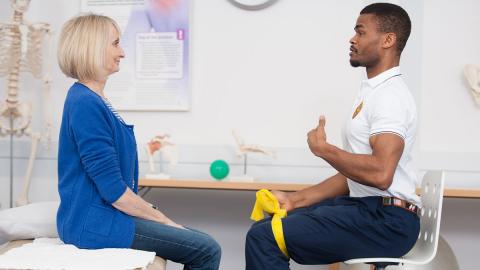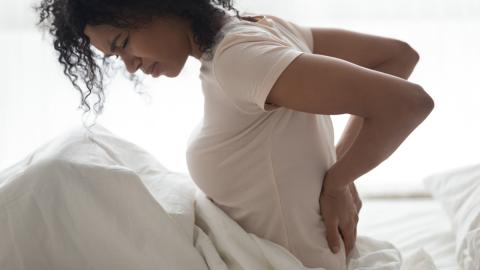Back pain is common condition and in most cases, it is not usually caused by a serious problem.
Back pain usually gets better within a few weeks. During this time, it is important that you stay active, and limit bed rest.
What can cause back pain?
In most cases, it is not possible to identify the exact cause of back pain. It is important to know that any kind of structural damage is rare.
While it can be painful and upsetting, this type of back pain usually gets better quickly. It can be managed through advice and remaining active.
Many physical or psychological factors can cause back pain and often a combination of these are involved.
Many factors can cause back pain and often a combination of these are involved.
They could be:
- Physical factors, such as ‘protecting’ the back and avoiding movements, or a simple strain.
- Psychological factors, including a fear of damage or not getting better, feeling down or being stressed.
- More general health and lifestyle factors, like being tired and rundown, not getting enough good quality sleep, being overweight or not getting enough physical activity
- Social triggers, such as difficult relationships at work or home, low job satisfaction or stressful life events, like a family death or illness.
Crucially, it’s important to know that all pain is 100 per cent real and never ‘all in your head’, even when factors like stress or mood are involved.
Each of the factors can turn up the volume on your pain and gaining a greater understanding of when that can happen puts you in a stronger position to recognise them and learn how to turn down the dial again.
Sometimes there are specific causes for back pain, especially when there is leg pain, pins and needles or numbness too. This can be caused by irritation or compression of the nerves in the back.
Is back pain caused by a 'slipped disc'?
The short answer is no. Whilst the term is widely used, it is not accurate and it can be very unhelpful for people with back pain or back and leg pain and make them more fearful of moving and doing normal activities.
Discs are designed to help the spine take loads and transfer pressure as we move around. In fact movement and loading helps to keep the disc healthy and strong. Their design makes it impossible to ‘slip a disc’ and equally impossible for a practitioner to ‘put the disc back’.
A disc can be strained under sudden or repetitive overload, in the same way as other joints in our body. This can cause pain locally in the back or referred pain into the buttock and legs. It usually gets better without doing anything. It can also respond well to taking simple painkillers and keeping active, doing as much of your normal activity as possible.
Symptoms to be aware of:
These symptoms are very rare but you should contact a doctor if you experience any of them:
- Difficulty passing urine or having the sensation to pass water that is not there
- Numbness / tingling in your genitals or buttocks area
- Loss of bladder or bowel control
- Impaired sexual function, such as loss of sensation during intercourse
- Loss of power in your legs
- If you are experiencing pain that runs down the back of both legs
- Feeling unwell with your back pain, such as a fever or significant sweating that wakes you from sleep






































